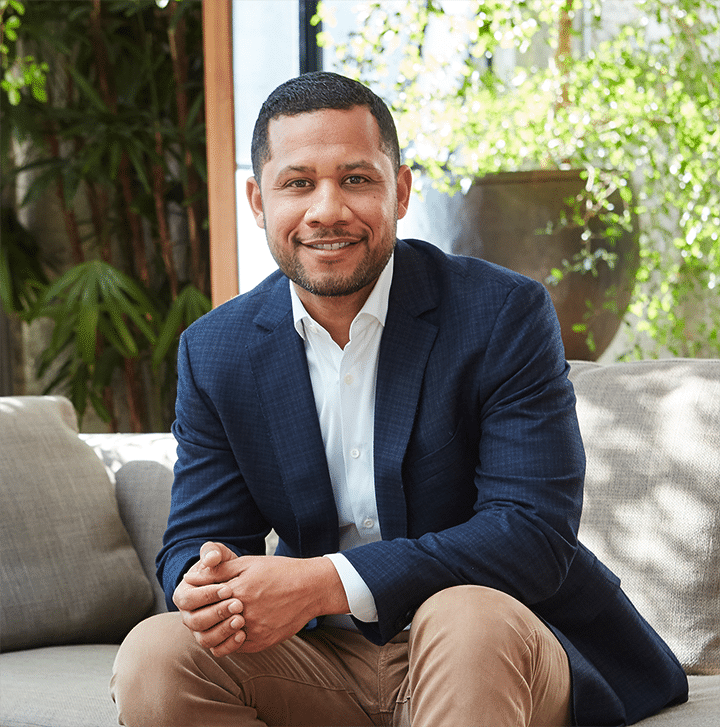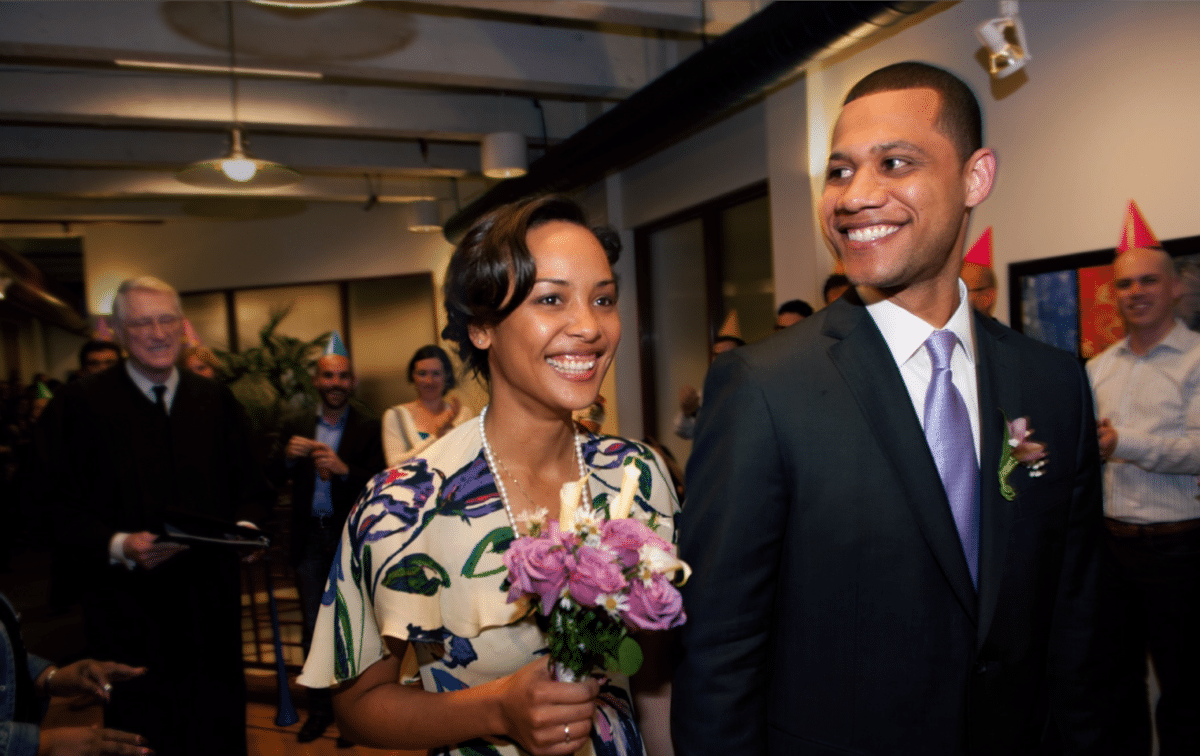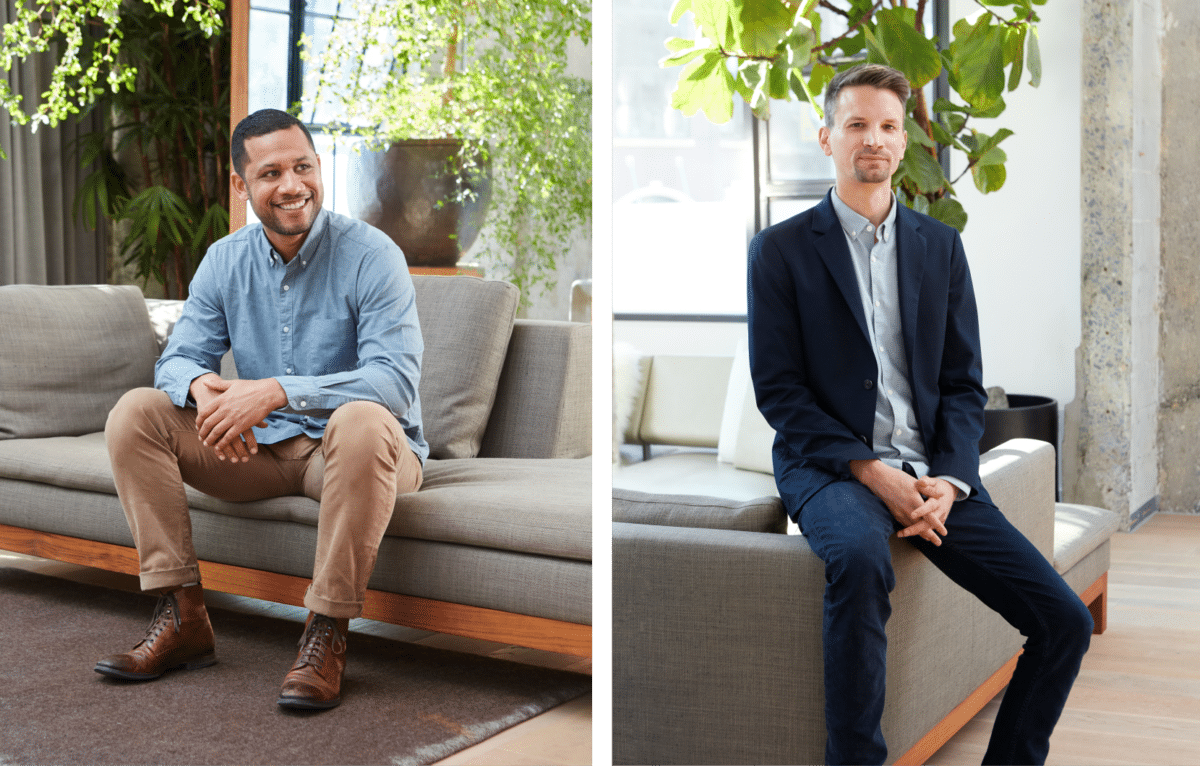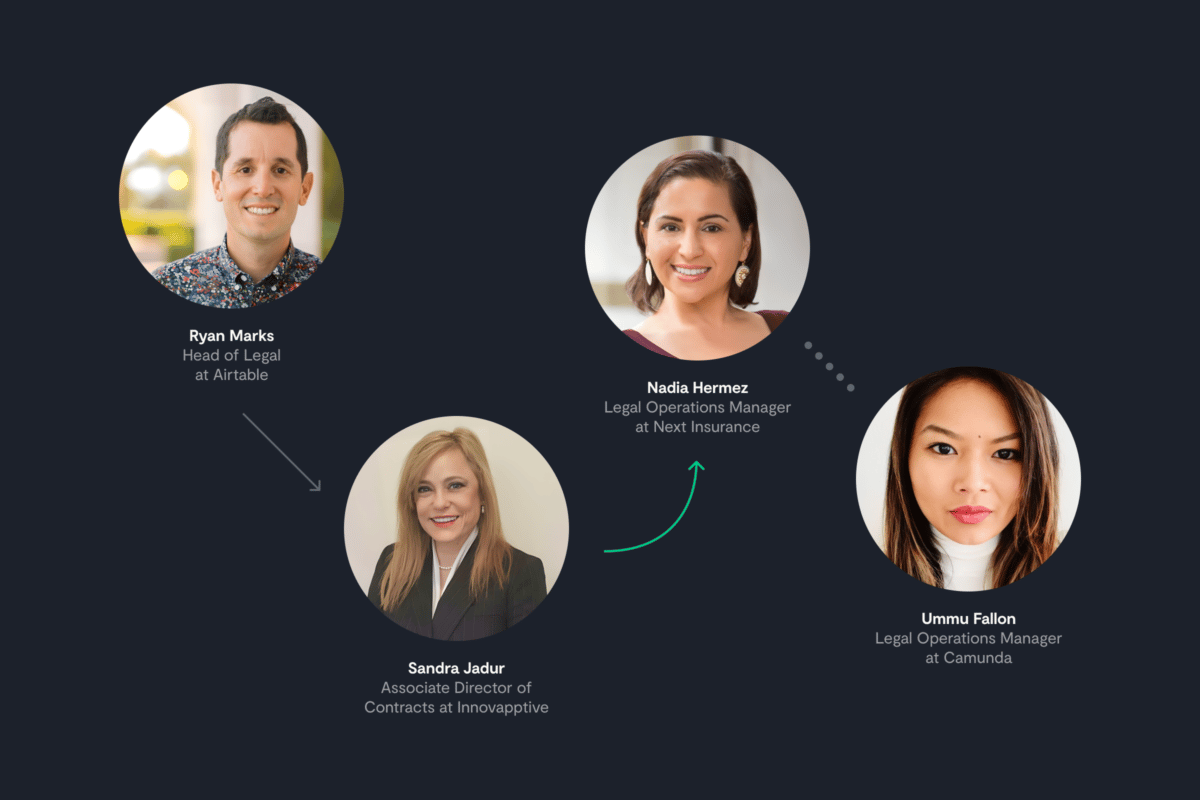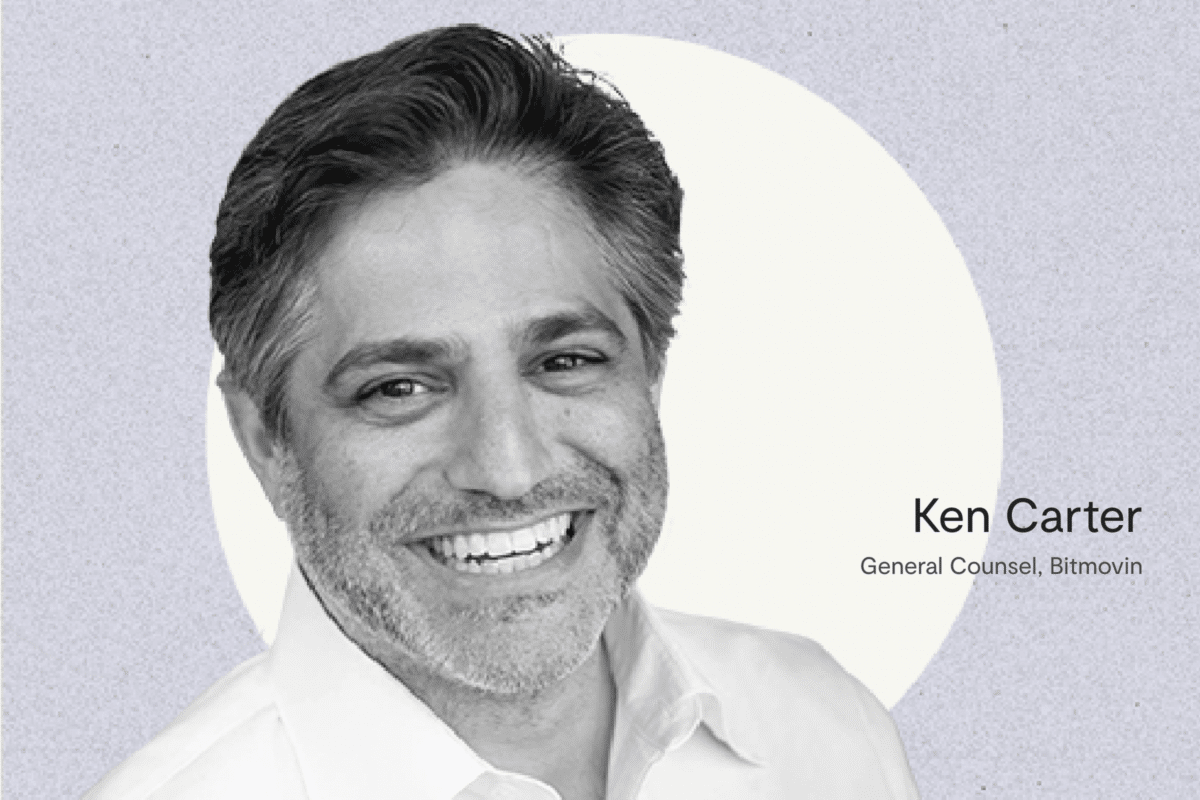What was your first role after law school?
I went to law school at UC Berkeley and graduated in 2005. After I graduated, I wanted to pursue a career in public interest law, but I was strapped with student debt, so I went to Morrison & Foerster (MoFo), a private law firm based here in San Francisco.
I was a litigator, and I was lucky. The moment I walked in the door, I was invited to co-lead a pro bono case with a senior partner who planned to sue the state of California, the then-Governor, and the then-Superintendent of Public Instruction over the constitutional integrity of the California High School Exit Exam. At the time, the state was poised to deny diplomas to seniors who hadn’t passed a standardized exit exam, even if they had satisfied all of their other graduation requirements. We argued that the diploma penalty was unconstitutional. The year before, the state had essentially admitted in another lawsuit that poor schools and students were not being treated equally; if you were a poor student at an underfunded school, you often didn’t have teachers who were qualified to teach, or you had outdated textbooks and classroom environments that were not conducive to learning. There would be a lack of heat or a lack of air conditioning; in some classrooms, rodents or insects joined the students for daily instruction.
We argued that under the California constitution, every student has the right to an equal education. In the state’s earlier case, the state essentially admitted that it wasn’t maintaining schools equally. And yet here it was a year later, administering this one-size-fits-all exam with severe consequences for failing.
So anyway, that was my first case as a lawyer, and it lasted my first full year at Morrison & Foerster. It was a fantastic case. We were able to effect change, on some level, through that high-impact litigation. Shortly after that, the case was appealed and we had a waiting period, and I moved on to some of your more run-of-the-mill corporate litigation.
You joined the Obama campaign after Morrison & Foerster, right?
After Morrison & Foerster, I had the opportunity to get involved in the Obama campaign. First, by joining the campaign’s exploratory committee and becoming an early max-out donor. And then later, by becoming one of his first full-time staff based in Northern California. I served as the campaign’s Deputy Finance Director for Northern California.
I took a leave of absence from Morrison & Foerster to join the campaign. I also gave up a federal clerkship that was supposed to start the following summer, and then went off to make very little money to help support a long-shot candidate in his bid for the presidency. That journey was an exciting one. It was one of the best experiences of my life.
It really brought truth and credibility to the notion that money doesn’t mean everything. A sense of purpose is a big deal, and I really felt a strong sense of purpose being one of many people throughout the country who were helping Barack Obama get elected.
It really brought truth and credibility to the notion that money doesn’t mean everything. A sense of purpose is a big deal.
What was it like to work on the Obama campaign?
When I started working on the Obama campaign, general consensus was that it was highly unlikely he’d become the president of the United States. At the time, Hillary Clinton was the heiress apparent to the presidency, and many folks who’ve been involved in politics for years aligned themselves with her. But I just felt that Obama was a candidate who really wanted to bring a divided country together. I didn’t care as much about the end, I cared about the means, and trying to help amplify his message because I thought it was healthy for the country.
In the fundraising sense, we started small. We’d get a rental van and pick then-Senator Obama up from the airport, and we’d go to small fundraisers and raise tens of thousands of dollars, maybe around a hundred thousand dollars if we were lucky. Fast forward to the end of the campaign, after many, many fundraisers: his popularity was at an all-time high, and we were then sitting in a Suburban, in a motorcade, en route to events that raised millions of dollars.
What happened after the election?
After Obama was elected, I considered moving to Washington, D.C. to help out with his transition. But at the same time, I also had the opportunity to go back to Sacramento, my hometown, where my friend had just been elected mayor. He invited me to be his Senior Adviser and Counsel and to help lead his transition team.
So I moved back to Sacramento. Actually, I moved back in with my mother–she was thrilled!–and helped the then-Mayor build out his administration. I served as his Senior Advisor and Counsel for the first six months of the administration before I was presented with the opportunity to move to D.C. to work in the White House under the Special Counsel to the president. After a short time there, I was appointed to serve in the U.S. Department of Justice, where I was Associate Director of Intergovernmental Affairs.
The DOJ–what an amazing job. Why did you decide to move back to San Francisco?
I spent about a year and a half in D.C. and had a great experience. Working for the government was very different from campaigning. And it was very different from private practice. It was a very exciting time for the administration.
At the same time, I was at a crossroads. My then-fiancée and I, both from California, were trying to decide whether we would stay on the East Coast or move back to California and start to grow some roots here. We decided on the latter, in large part because I had an opportunity to work at Keker, Van Nest & Peters, an SF-based litigation boutique that I’d wanted to work at for years. When I got that opportunity, my fiancée and I packed our bags, put our puppy in the car, and drove back to California. We’d always wanted to do a cross-country road trip.
How did you like working at Keker?
I was at Keker for four years and absolutely loved every minute of it. It’s really an incredible place. Like at any top-tier law firm, the work was intellectually challenging and time-consuming—it’s a grind—but what’s unique about Keker is the strong sense of community and camaraderie. The firm had some of the most brilliant legal minds I’ve had the privilege of working alongside. Oh, and true story: my wife and I got married in the lobby of the law firm the day after we settled a bet-the-company case for a well-known Silicon Valley tech company.
What made you move on?
I loved Keker, but while I was there, my wife and I had our first child, Elijah. I was home on paternity leave and thinking about what kind of parent I wanted to be, what type of career I wanted to explore. I felt like I wanted to mix things up a bit and understood that there was a finite amount of time during which I could actually go out and try something different.
I decided that I wanted to break out of my comfort zone and take a calculated risk. I had dinner with a friend who had previously left the firm and co-founded a company called OpenGov, which is a financial transparency software company that lets constituents and stakeholders within the government visualize their budgets. He asked me to join the company—not as a lawyer, but rather to run their business development team. After a lot of soul-searching, I made the difficult decision to leave Keker and join OpenGov as their Head of Business Development.
How did you go from litigator to Head of Business Development, without any prior experience?
It actually wasn’t that tough! One of the reasons it wasn’t that hard of an adjustment was that we sold software to local governments, and I had a fair amount of experience in government. I had helped set up the mayor’s administration in Sacramento and was friendly or otherwise acquainted with certain other mayors and elected officials. I understood that mayors and other government leaders very much wanted to be transparent and to provide their constituents with the information they want and need. So, the selling part wasn’t so bad. I believed—and still do—in the company vision.
That said, it was still a significant challenge. I was definitely pushed outside of my comfort zone, which is something I’m always looking for in new career experiences. I feel like that’s how you grow as a professional.
What made you switch back to legal and join GoFundMe?
Out of the blue, I got a call from a partner at a well-known venture capital firm, asking whether I wanted to be the first lawyer at GoFundMe. At the time I hadn’t heard of the company and wasn’t interested. I liked working at OpenGov and with my friend, the CEO. But as I continued to have conversations, it became clear that it was a unique opportunity. So, I joined as their first in-house counsel, later becoming GC. I was their first legal hire and it was my first true in-house counsel position.
What else was different about going in-house versus private practice?
At a law firm, you’re a revenue generator. But as an in-house lawyer, you’re not. You’re often seen as a cost center, and companies tend not to want to prioritize investing resources into departments that are spending the company’s hard-earned revenue.
So the job of in-house counsel is enormous and quite important because you’re charged with protecting the entire organization, but it’s often difficult to prove your value to your executive colleagues. That’s in part because it’s hard to prove a negative. It’s hard to say, “Hey, if it wasn’t for my tweak to our privacy policy, or for the decision I made in litigation to settle a particular suit, our potential liability could have been massive and potentially game-changing.”
I was definitely pushed outside of my comfort zone, which is something I’m always looking for in new career experiences. I feel like that’s how you grow as a professional.
What have you learned about how to communicate the legal team’s value to executives?
Every organization is different. Sometimes you’ll be fortunate enough to have an executive team that has a lawyer, or someone who’s married to a lawyer, who can understand or empathize with your position.
But if you work with an executive team that doesn’t have a lot of legal experience, which is often the case, it’s definitely a mindset shift. For the lawyer who was once in private practice and who had all the support that she needed, securing resources without executive sponsorship can be an uphill battle, to say the least.
One tip is to always put things in terms that your executive team will understand. Specifically: how will your request or decision impact the company’s bottom line? For example, at GoFundMe, I was able to secure the necessary financial resources to implement Ironclad because I demonstrated that my time was better spent navigating legal landmines and protecting the organization, rather than on administrative, contracts-related work.
One tip is to always put things in terms that your executive team will understand. Specifically: how will your request or decision impact the company’s bottom line?
How did you prioritize work at GoFundMe?
When I started, there was so much work to do: making sure that all of our documents were properly filed and indexed; ensuring that each and every agreement that came through was closely reviewed and edited; ensuring that we avoided litigation. The list goes on.
I knew that I needed to focus on the mission-critical legal work that only I could do. There are only so many hours in a day, so that meant cutting out the work that didn’t require my legal training. For example, for my first several weeks at GoFundMe, subpoena-related questions, NDAs, and contracts accounted for probably 70% of all of my incoming mail from within the organization. I’m talking about engaging in high-volume, routine tasks that really weren’t the best use of my time. So, the first thing that I did was build a process for responding to criminal and civil subpoenas. Eventually, I came up with an SOP and trained staff to process and escalate subpoenas, as needed.
What were some of the contract-related challenges you experienced?
Contracts were a beast and a huge time sink. Sometimes, I’d receive and spend hours reviewing a large Master Service Agreement, only to find out that the business owner hadn’t gotten approval for the spend from his manager. So, that was 3-4 hours wasted that I could’ve spent focusing on big-picture issues that would help protect the company and advance our mission.
For a time, I found myself in a situation where I was bombarded with requests from business owners to either create or review NDAs. At first, that meant changing the names and dates on our form NDA over and over again, and then manually tracking to whom I had sent them, and spending a surprising amount of time ensuring that we collected and filed the fully executed versions. I knew that I needed help automating this and other contracts-related processes in order to separate the true legal work from the administrative work. It was also important to establish a single source of truth within the organization—that is, a place where every company contract lived. That’s when I reached out to a network of GCs and asked if anyone knew of a great contract management system. Jason (the CEO and co-founder of Ironclad) was the one who wrote back.
So that’s how you met Jason. What were some of your first experiences with Ironclad while at GoFundMe?
By streamlining contract workflows, Ironclad enabled me to apply my existing legal knowledge to all kinds of creative things that could actually advance the business from a revenue standpoint. If I had been mired down in contracts or subpoenas, I wouldn’t have had the time to deal with that, because as in-house counsel, your first job obviously is to protect the company. It’s not to grow the business, it’s to protect it.
Ironclad freed me up to think beyond the legal table stakes. It gave me time to contribute to GoFundMe’s strategic mission and overall vision of providing a platform to the entire world that enables people to help people. For example, it gave me the time to start a 501(c)(3) non-profit organization, the Direct Impact Fund, that raised 33 million dollars from nearly 200,000 donors in less than a year. And before long, I was leading strategic partnerships for the company—a completely non-legal role.
Why did you end up joining Ironclad?
I was an early customer and got to know Jason, Cai, and the team over the past two-and-a-half years. I was excited about joining Ironclad because I loved the product, and the product has a chance to change an industry that hasn’t experienced much change over the last few centuries. There have been many attempts by other companies to “disrupt” the legal profession, but it’s been mostly in the way of, “Hey, hire this lawyer for four hours from this platform and pay us a fee.”
Ironclad is actually software that’s built for lawyers, by lawyers, and it’s solving a big problem that just about every in-house counsel has, which is separating the wheat from the chaff—that is, allowing a machine to do the paperwork and the administrative work, and freeing up in-house counsel time and brain space to focus on impactful work. Not only does this help lawyers develop their sense of purpose within an organization, but it also helps those organizations run more efficiently. And so, when people talk about disrupting the legal industry, this is really a way to effect change in an industry that desperately needs it.
Watch how Ironclad works
What’s most exciting to you about this next chapter in your career?
It’s rare to join such an amazing group of people, who are all focused on solving the same problem and who are simply just a pleasure to be around. I love going to work each day. Cladiators are incredibly smart and well-accomplished, but also very humble. And we’re mission-driven. We are not in the game to make a quick buck, we’re in the game to change the in-house legal profession for the better. We understand the end-user because many of us have been the end-user, or have relationships with end-users. I was also excited to join Ironclad to work with the people I’ve gotten to know over the past couple of years as an Ironclad customer.
Want more stories like this?
Ironclad is not a law firm, and this post does not constitute or contain legal advice. To evaluate the accuracy, sufficiency, or reliability of the ideas and guidance reflected here, or the applicability of these materials to your business, you should consult with a licensed attorney. Use of and access to any of the resources contained within Ironclad’s site do not create an attorney-client relationship between the user and Ironclad.
